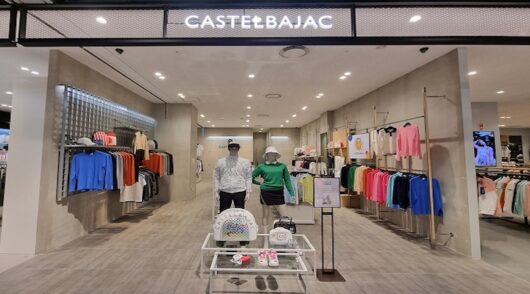Hong Kong shoppers generally have little passion for supermarkets and fast-fashion retailers – despite brands in those categories being front-of-mind.
And Hong Kong retailers are failing to connect with customers in key areas of commitment, intimacy and passion, according to a survey from global loyalty marketing agency ICLP.
About two in three consumers cite fast-fashion brands as top-of-mind and one in three name supermarkets. But ICLP says there is a palpable lack of “passion and commitment” to those brands.
“Brands need to understand the individual buying behaviours and purchasing decisions of their customers in order to map out suitable solutions to engage them and thus strengthen the customer relationship,” said ICLP GM Mary English.
The survey asked respondents to rate their expectations and experiences with retail brands in core relationship criteria.
Among those who named supermarket brands in the survey, 35 per cent are in a ‘liking’ relationship which lacks passion and commitment.
“They only feel intimacy towards the brand, meaning that many come into contact with the brand on a regular basis, and are willing to share information and interested in obtaining information about products,” said English.
“The nature of the business and characteristics of the sector could well be one reason for the results. Supermarkets are where consumers acquire their daily consumption needs, and players in this retail sector offer close to the same selection of products, consistent quality, standardised commodities and self-service. Supermarket customers emphasise value for money and are price-sensitive. They are likely to switch supermarket brands when the next best offer comes along. This is also reflected from the smallest gap of reliability between expectation and experience of relationship criteria according to the study. Minimal brand enthusiasm with no engagement has resulted in the large percentage of ‘liking’ relationships,” she concluded.
“Supermarket brands should consider how to create stronger reward programmes and ensure consumers access to special and tailor-made offers in order to enhance the emotional connection between their brand and customers, thus developing ‘devoted’ relationships.
Missing out
Fast-fashion retailers are “missing all three relationship components” according to English.
In the survey, 15 per cent of total respondents voted fast-fashion brands as their top-of-mind brands. Over 60 per cent of them are Millennials born post-1980, as fast fashion targets the younger generation who keep updated of the latest trends and expect a rapid response. Among those who selected a fast-fashion brand, 33 per cent of respondents are in a ‘casual’ relationship with limited passion, intimacy and commitment: that is, they like the brand but avoid getting too engaged.
“This may be explained by the characteristics of the fast-fashion sector. Fast-fashion brands do not heavily emphasise brand character and identity, but focus on the availability of options and trendiness, coupled with relatively low prices,” said English.
“As a majority of Hong Kong millennials are less committed and passionate towards their favourite retailers, fast-fashion brands need a cohesive consumer engagement strategy to improve commitment and passion, and foster ‘devoted’ relationships with millennials.
“While fast-fashion retailers keep customers updated with the latest trends and products information, they still have some way to go in structuring their brand character and identity, and incorporating these elements into their loyalty programmes, which are only price-driven, in order to enhance emotional connection between customers and their brand.”
English said that given the high spending potential of millennials, they should be seen as an influential generation that loves online shopping.
“They can easily access online shopping platforms to review product information and comment before making purchase decisions. Any brand that is able to develop an innovative online-to-offline customer engagement strategy will have a chance to stay ahead of the competition. While online shopping brings convenience to both brands and customers, the conversion of online shoppers into real-life foot traffic remains essential for brands to succeed in an increasingly digital retail environment.
“With the rise of digital platforms and e-commerce, retailers need to understand individual customers’ needs by leveraging customer data such as purchase preference and consumption habits, and by big data analysis. To build closer connections with millennials, fast-fashion brands should fully utilise social media such as fan pages, forums and social media activities with incentives to engage millennials who frequently use digital media during their shopping journey, and actively listen across channels to win long-term trust from customers. Relevant recommendations and insights on the latest trends from the brand based on their preferences are top of Millennials’ demands,” she concluded.






